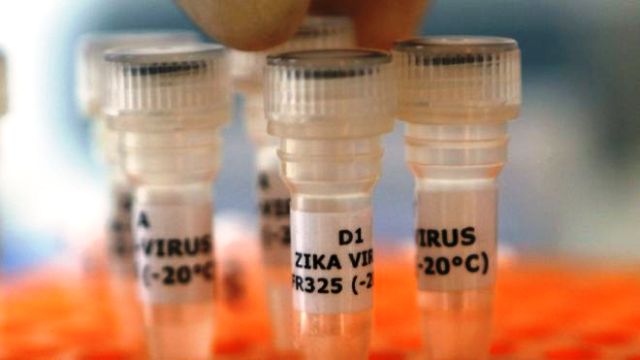
Vaccine against Zika virus should take over four years to reach the market
Around 67 companies are committed to the matter. No vaccine or drug has been tested in humans
12/05/2016
A recent study by Brazilian researchers showed that chloroquine, present in some drugs used against malaria, could effectively protect fetuses brains against Zika
Despite the urge for actions to fight Zika, an effective vaccine against the virus could take five years to reach the market. The information was recently announced by a director of the Health Ministry and meets the infectious diseases expert Kleber Luz. beliefs.
A vaccine against Zika clearly wont be available for the next three or four years. It is almost impossible it does. Explains Doctor Kleber, who works at the Infectious Diseases Department at the Federal University of Rio Grande do Norte (UFRN).
According to him, the researches results about the theme are still not tangible due to the short period of time since the virus circulation was discovered, in Brazil and the Americas. All we have are other research areas aiming at the virus genetic code, from the virus structure understanding. However, from the practical or applied research point of view, we still have nothing, says the specialist.
According to the World Health Organization (WHO), currently 67 companies and institutions are committed to developing tests, vaccines, drugs and products to control the Zika vector, the Aedes aegypti. Despite the studies currently being in different development stages, no vaccine or drug has been tested in humans.
In a hearing at Brazils Congress Lower House in the beginning of this month, the director of the Science and Technology Department from the Health Ministry, Reginaldo Prata, said, the expectations are that Brazil will have a vaccine against Zika in five years. In order to achieve this, according to him, the Ministry has supported the Butantan Institute and Biomanguinhos Institute to develop the drug.
The urge of the studies about the theme owes to the Zika outbreak in Brazil, with strong relations to another severe problem: microcephaly transmission, a disease that makes babies develop a smaller than normal head and brain, from mother to child. Health Ministrys data from the end of April show the reports of 91,387 cases possibly due to Zika infection in the Country. The arrival of the virus in Brazil raised the number of children born with microcephaly from 147, in 2014, to at least 1,271 cases from October, 2015 to April 30, this year.
Due to the severity of the mother-child transmission, Doctor Kleber stresses this must clearly be the research line to be prioritized. Whenever the subject is funding, that meant for research is little. But the federal government announced public notices for fast tracks, i.e., a faster funding line for researchers interested in investigating Zika, he explained.
Anti-malaria drug could be effective
A recent study by Brazilian researchers showed that chloroquine , present in some anti malaria drugs, could effectively protect the fetuses brains against Zika. The preliminary results are promising: they affirm chloroquine protects the neurospheres, cellular structures that replicate the brain still in formation, by 95%. The work was developed by scientists at the Biomedic Sciences Biology Institute at the Federal University of Rio de Janeiro (UFRJ) and DOr Research Institute.
Despite promising, however, it is important to clarify there are still some steps to know how efficient it can be to avoid the development of microcephaly in infected women and, if proven, what is the best strategy.
First, are the in vivo tests (humans or not), demonstrating reduction or elimination of viral load in the blood and other possible reservoirs. The next step are random clinical studies (with possible adaptations to outlining) to assess the effectiveness to prevent microcephaly and in which magnitude this is achieved. At last, a study of the best strategy to use in areas where the transmission is active, especially considering the high proportion of asymptomatic infection.…










